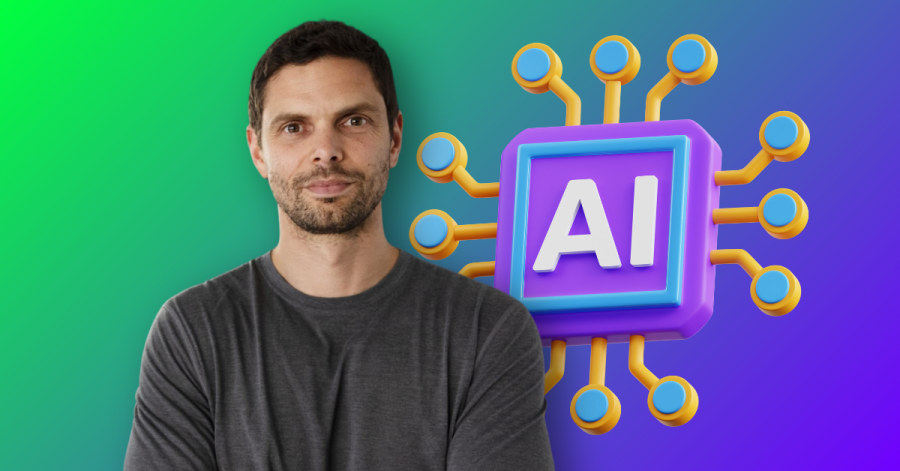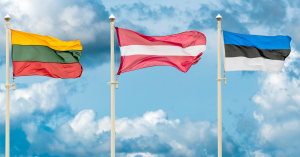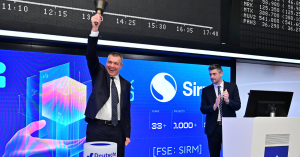Behind the forefronts of generative AI, there’s a tech war brewing. The AI Chip War.
Industry giants, such as Nvidia, AMD, Google and Intel are pushing the boundaries to roll out chips that promise greater and faster processing power, energy efficiency, and high throughput. Also known as artificial intelligence accelerators or AI processors, AI chips are optimized for handling the large-scale mathematical operations and data processing characteristic of AI workloads.
Enterprises worldwide use AI solutions and models to address their most complex challenges, so the question of the workload becomes prerogative. How can we work and innovate with AI, on the scale, in a fast and efficient way? Chip makers need to answer those questions if they want to satisfy unique business needs.
One of the biggest players – AMD, is trying to step up the game with M&As that will help him get there. AMD has invested over $125 million across a dozen AI companies in the last 12 months and also acquired French Mipsology and open-source AI experts Nod.ai to expand the AMD AI ecosystem.
Their most recent acquisition of that kind is the Finnish Silo AI, Europe’s largest private AI lab. About the acquisition announcement as well as the European AI market and regulation, we had an opportunity to talk with it’s CEO Peter Sarlin at a recent Bits & Pretzels conference.
Sarlin is also the co-founder of Silo AI, and a Professor of Practice at Aalto University, specializing in machine learning and AI. Formerly, he also held the Vice Chair role of the IEEE Computational Finance and Economics Technical Committee, as well as tenures at the European Central Bank and the International Monetary Fund, among others.
Flagship European AI company
Silo AI was founded in 2017 to, as they say, attain world-class AI talent, and to enable corporations to implement cutting-edge AI through this talent. Professor Sarlin co-founded it with ex-Nokia CTO Tero Ojanperä, ex-PwC CEO & Chairman Johan Kronberg, entrepreneur Ville Hulkko, Adjunct Professor Kaj-Mikael Björk and Elektrobit founder Juha Hulkko.
Since the beginning, they’ve been on a mission to ensure Europe has a flagship AI company, and their efforts have been well awarded. Silo AI has been a pioneer in scaling large language model training on LUMI, Europe’s fastest supercomputer powered by over 12,000 AMD Instinct MI250X GPUs.
The company also launched the generative AI product arm SiloGen and the first models of the European multilingual open language model family Poro. Silo AI currently employs about 300 people, and throughout its history, Sarlin adds – about half of the team has always had a senior academic background.
“We also operated as an R&D partner to our customers, providing a combination of open source foundation models, tooling and infrastructure, or model serving a platform and then, as an R&D partner, helping our customers integrate and embed AI into their core products.”
They’ve been working with customers across many different segments, from smart machines and autonomous vehicles to search engines and optimizing image quality of mobile phone cameras, all the way to large language models and Gen AI, which they are focusing on right now.
Where is Europe in AI race?
When asked about key ingredients needed to make Europe a global leader in AI innovation, Sarlin says it is already well positioned. “Talent, compute and data – we have access to them all.” However, as he points out in his recent blog post, “We’re failing to translate this potential into market-leading businesses at scale. We excel at inventing, but struggle to commercialize.” For The Recursive he pointed:
“I think the key element is to ensure we succeed in creating value with AI in such a way that the value actually stays in Europe, to ensure that we have scalable digital costs.”
The impact of the EU AI Act on Europe’s global competitiveness is the following topic. The everlasting question in recent years is whether it would aid digital sovereignty or create barriers for European AI companies.
Peter Sarlin expressed optimism about the legislation and that he will be “very happy to see it implemented”, but is transparent in pointing out the downfalls, especially “quite a bit of uncertainty in the market” the lengthy process caused. About the Act’s content, he praised the Act for shifting from regulating “systems, methods, and technologies” to a focus on use cases and industry-specific applications, along with risk categorization. This, he believed, “provides a good basis for eventually creating a framework” for AI regulation in Europe, because “ethical concerns will vary greatly when it comes to, for instance, autonomous vehicles versus social media platforms or general-purpose knowledge assistance.”
However, Sarlin did express a concern about the inclusion of “general purpose AI” (GPA) in the final version of the Act, which was added late in the process. He emphasized that “more clarity” would be needed on how GPA would be handled, but he was confident that this would come once the Act is fully implemented.
“Europe needs significantly more scalable digital companies”
Uncertainties like these don’t help the EU in the tech race with the US and China. For that matter, according to former European Central Bank (ECB) President, Mario Draghi who made the most recent report on Europe’s competitiveness – the situation is urgent and costly. To bridge the gap, the EU would require an annual investment of €750-€800 billion – about 4-5% of EU GDP.
Whether this approach is sound, Sarlin expressed concern in his blog post (and he is not alone).
“While the report rightly identifies the tech sector as the primary driver, we must ensure we don’t miss the forest for the trees. While public financing is important and regulation has a role, we must also address a more fundamental challenge: Europe needs significantly more scalable digital companies to truly capitalize on AI’s potential.”
Silo AI in AMD’s AI ecosystem
When asked about AMD’s expectations from acquiring Silo AI, Sarlin stated that while there hasn’t been much commentary on the transaction, Silo’s current standing as a “leading private AI Lab” is a key factor.
The acquisition brings with it Silo’s “capabilities in a team of world-class AI scientists, a model serving platform, an enterprise AI platform, and open-source models.” Additionally, after the completion of the acquisition Silo will continue to operate from Europe, remaining headquartered in Helsinki, with Sarlin staying in place to lead the company. Importantly, the acquisition provides more resources, allowing Silo to “create more value, of course, on AMD compute platforms“, Sarlin pointed out.
He remained cautious when talking about AMD’s broader AI strategy and its position in the competitive AI and semiconductor market. Following the same sentiment, the specifics of Silo’s role within AMD haven’t been fully disclosed, but it was clear that Silo can “create a lot of value,” given that its past activities align with what benefits both AMD and its customers, Sarlin explained.
Going forward, Silo will focus on “optimizing models and platforms” to be fully compatible and “optimized for AMD compute platforms”, he concluded.







